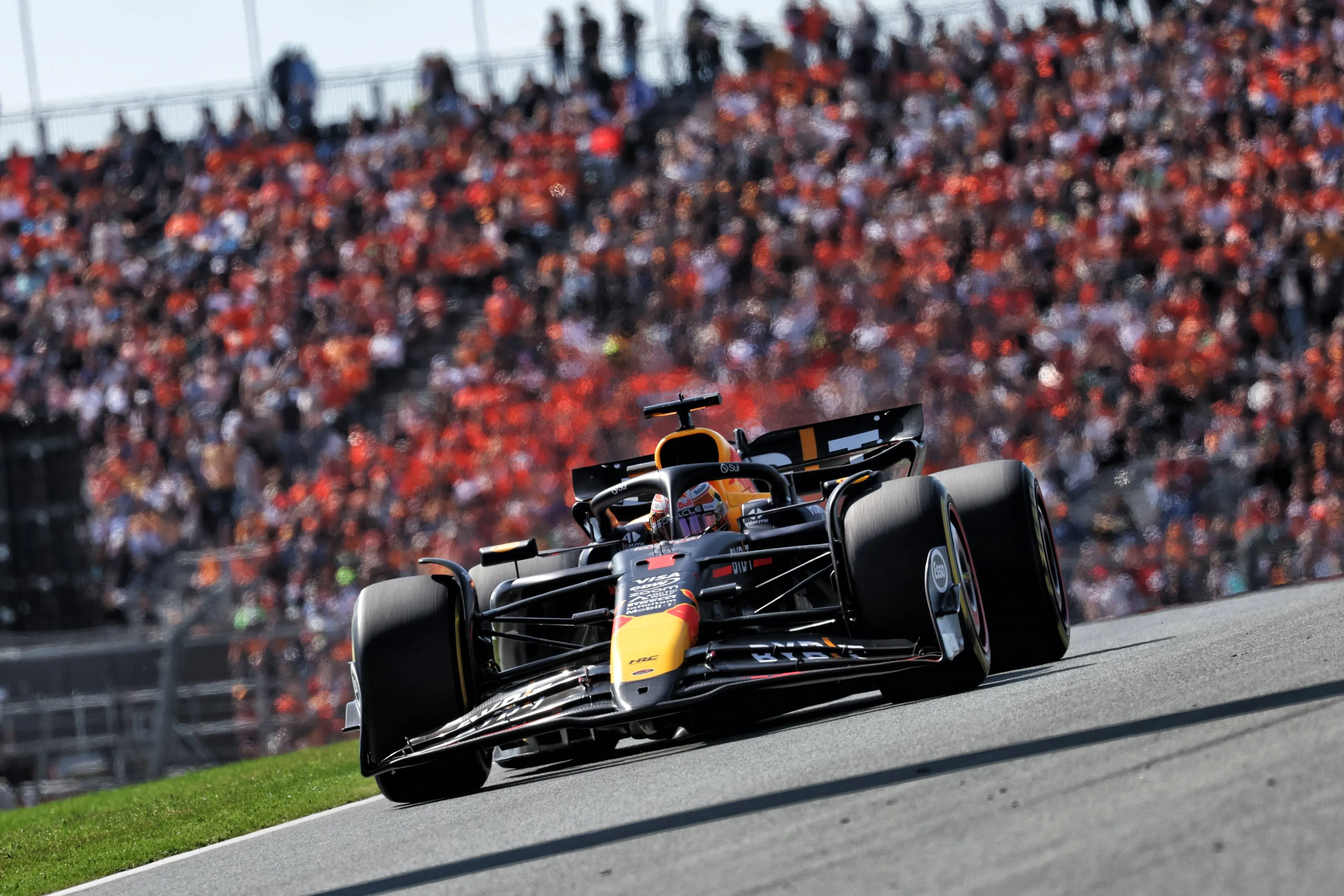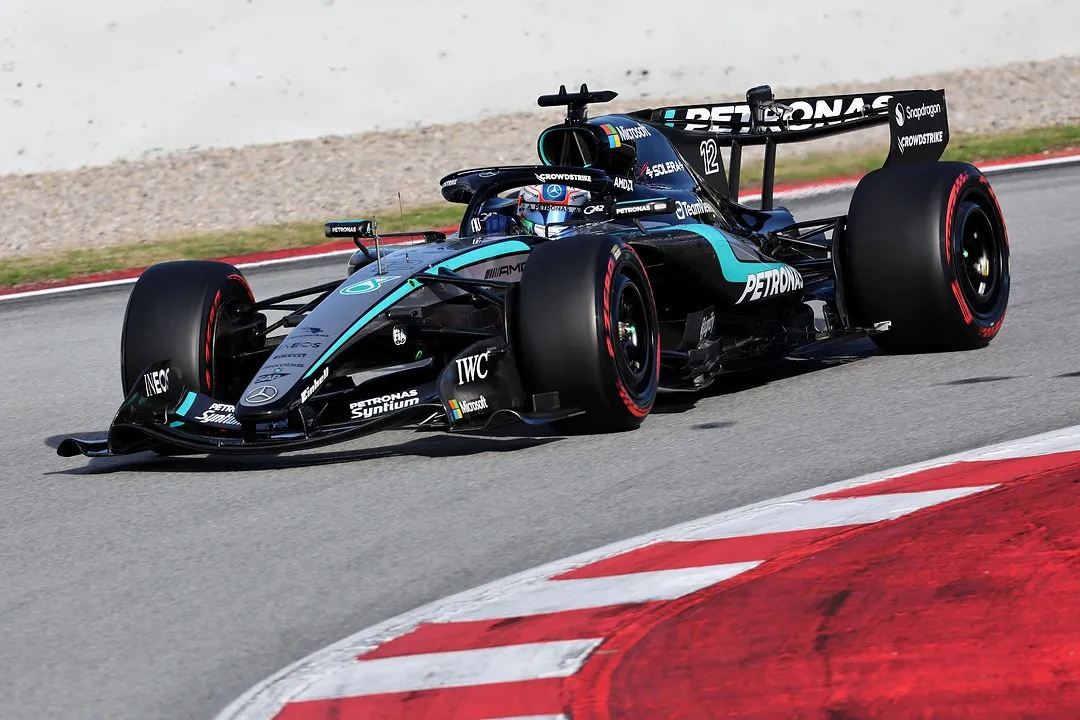
Photo: RacePictures.
Formula 1 travels more than ever, but manages to significantly reduce CO₂ emissions
01:01, 23 Jul 2025
Updated: 01:54, 23 Jul 2025
0 Comments
Formula 1 has announced that the sport has achieved a 26 percent reduction in its CO₂ emissions by the end of 2024 compared to the reference year 2018. This puts F1 on track to achieve its goal of being completely climate neutral by 2030.
F1 well on its way to achieving 2030 climate goals
The reduction in emissions has been achieved despite the growth of the sport in recent years. The number of Grands Prix per season has increased from 21 in 2018 to a record 24 races in 2023 and 2024. Without measures, the CO₂ emissions would have increased by an estimated 10 percent compared to 2018. Adjustments in various areas have instead led to a decrease to 168,720 tonnes of CO₂, compared with 228,793 tonnes in the reference year 2018.
Formula 1 thus confirms that it is more than halfway towards the minimum reduction target of 50 percent, as set out in the Net Zero target for 2030. Any remaining, unavoidable emissions will be offset from that point onwards through reliable climate programs, in line with the most recent guidelines. The net emissions should therefore be zero by 2030.
F1 points to various initiatives that have contributed to the decline:
- Factories and facilities: 59% less emissions compared to 2018, mainly due to the switch to renewable energy.
- Travel: 25% less emissions, thanks in part to remote broadcast technology and the use of sustainable aviation fuel (SAF).
- Logistics: 9% less emissions, among other things due to new freight containers, more efficient aircraft, and biofuel trucks within Europe.
- Events: 12% less emission per race. The emissions associated with the organization of races have increased slightly due to the higher number of Grands Prix on the calendar.
In the coming years, Formula 1 wants to continue to invest in sustainability to be fully climate neutral by 2030. This will include a focus on:
- Increased use of sustainable aviation fuel.
- More sea transport and the establishment of regional hubs.
- The switch to 100% sustainable fuel for F1 cars from 2026.
- More efficient calendar scheduling to reduce the number of long-haul flights.
F1 focuses on sustainable fuel
In 2024, Formula 2 and Formula 3 cars ran on a mix with 55 percent sustainable fuel. In 2025, both classes will have fully switched to advanced sustainable fuel, in preparation for the introduction of 100 percent sustainable fuel in Formula 1 in 2026.
According to F1 CEO Stefano Domenicali, the sport is showing that sustainable growth is possible: "We are strongly committed to achieving Net Zero by 2030. It is a concrete goal, already visible in the significant reduction of our sport's carbon footprint. While continuing to grow globally, we have shown that sustainable development is possible and that the strategies we have adopted are yielding tangible results.''
''Formula 1 has always been synonymous with innovation and the desire to improve. Once again, this mentality has allowed us to make important progress, not only for those who work in this world, but also for society as a whole.''
''We will continue to pursue our projects and next year we will introduce new actions, such as the use of advanced sustainable fuels in all Formula 1 cars, a step that also opens up significant opportunities for road cars and other means of transport.''
''We are proud of what we have achieved so far and remain determined to continue on this path. Thank you to the FIA, the teams, partners and promoters for their fundamental contribution along this journey."
Ellen Jones, Head of ESG (Environmental, Social and Governance) at Formula 1, emphasizes that the results are the result of long-term commitment at all levels of the sport: "Today’s results are the product of years of hard work across the sport. All areas have been tasked with operating more sustainably, and it is through this sport-wide engagement and delivery that we are able to achieve such significant emissions reductions.''
''Looking ahead, we have a clear plan to meet our commitments and to further demonstrate how growth can be positive for both sustainability and sporting outcomes. Formula 1 is uniquely placed to show that performance and sustainability can support one another, and I look forward to seeing the impact of initiatives already announced — such as changes to our race calendar from 2026 — as well as those yet to come, to help us deliver on our goals and beyond."
Read also
Read more about:
Rumors
Popular on GPBlog

1
Hadjar tops the timesheets in Barcelona as Audi hit morning trouble
4258 times read

2
Barcelona testing timings are online — and no one knows how's that possible
3760 times read

3
F1 LIVE | First Barcelona morning session in the books as Hadjar goes quickest
3053 times read

4
Red Bull leads the way in Barcelona on the first day of pre-season testing
1987 times read
Loading














